DYMAN is a 3-year EIC Pathfinder Challenges project that brings together 10 partners from four European countries (Spain, Germany, Italy, and Belgium).
This diversity, in terms of organisation types and geographic location, ensures that the project results will reach different communities and countries and can contribute with complementary views and approaches
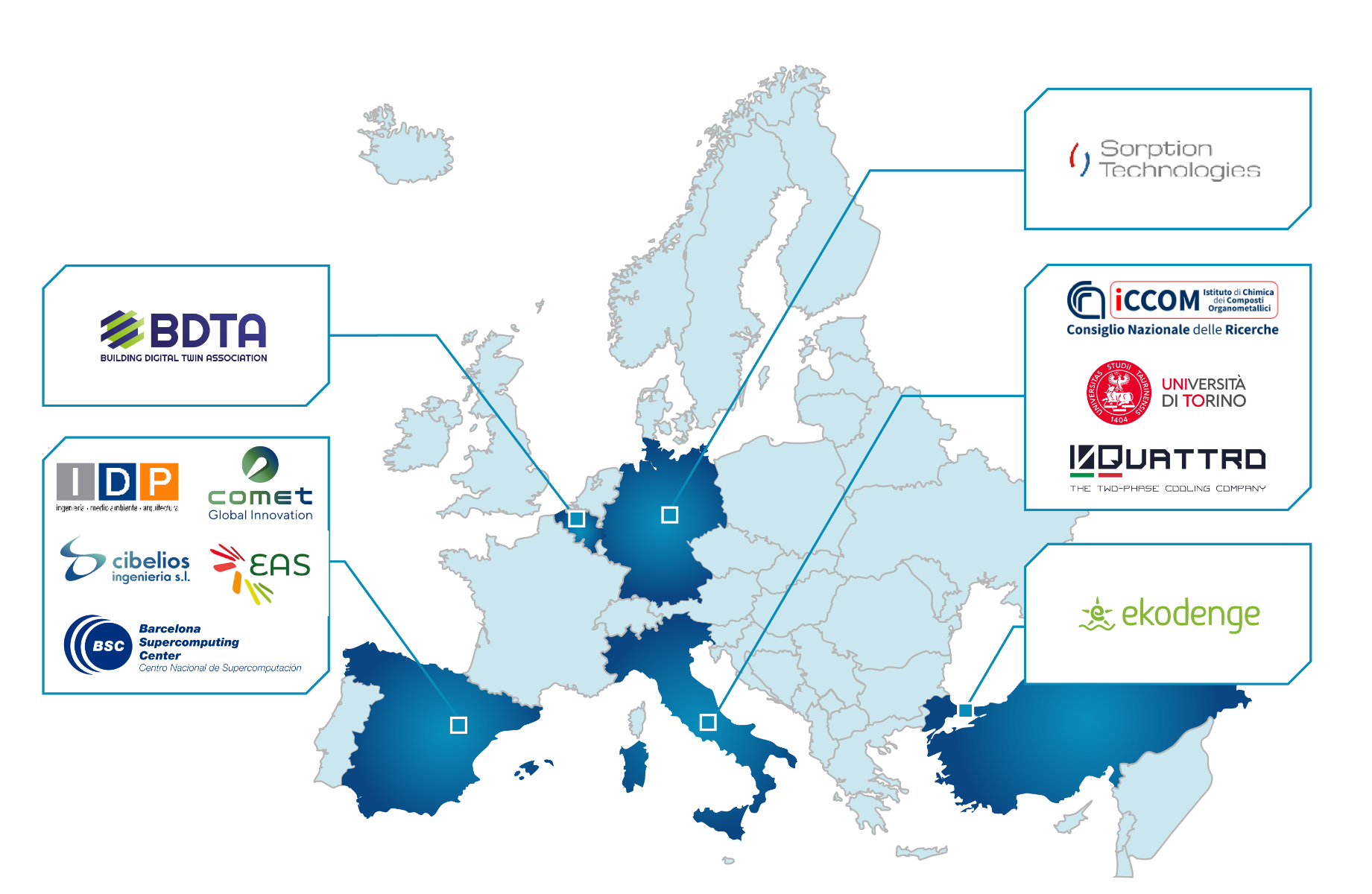

Large enterprise (Coordinator); also leads the demonstration and virtual validation activities (WP5).
IDP is a global and multi-sector technical services company, founded in 1998, working in the fields of engineering, environment, architecture, and ICT. IDP has offices in Spain, Peru, and Chile. IDP is an expert in BIM methodology applied to construction, including the integration of Virtual Reality, Common Data Structures, etc. IDP has developed, implemented and advanced their proprietary Digital Twin platform based on BIM (DTwin) and webAPI services in different EU-funded projects’ use cases, such as SPHERE and DIGICHECKS.

Sorption Technologies (SOR) is a European manufacturing company of adsorption chillers with headquarters and production plant in Germany, and R&D facility in Italy.
We develop, design and produce customized thermal chiller solutions, that need primarily heat instead of electricity. Our adsorption chillers use solid sorbent -silica gel- and natural refrigerant R718 -pure water- with GWP = 0; they require “low temperature” heat from 55°C to work and this allows electricity savings between 60% and 80% compared to a traditional electric chiller, with a consequent reduction in CO2 produced.

CIBELIOS is an energy services company focused on the Promotion, investment, Facility Management and O&M services of RES projects, assets and installations, energy efficiency and sustainability in Spain,, Portugal and italy, based on the open innovation paradigm, which allows us to collaborate with different companies along the value chain.
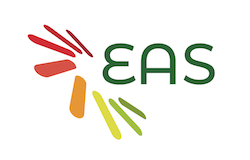
We believe in sustainable data centers, and efficient HPC/AI computing. Gain +20% efficacy per watt, or +20% more jobs.
How? With the new software standard for CPU and GPU: Energy Aware Runtime.
EAR is a powerful energy and power management software stack. EAR does monitoring, analysis, reporting, powercap and optimization!
It is hardware independent, configurable, live at runtime and non-intrusive. Deep tech but user-friendly.
Some of our clients: Leibniz Supercomputing Centre, EDF, SURF, Barcelona Supercomputing Center, and EU research projects…
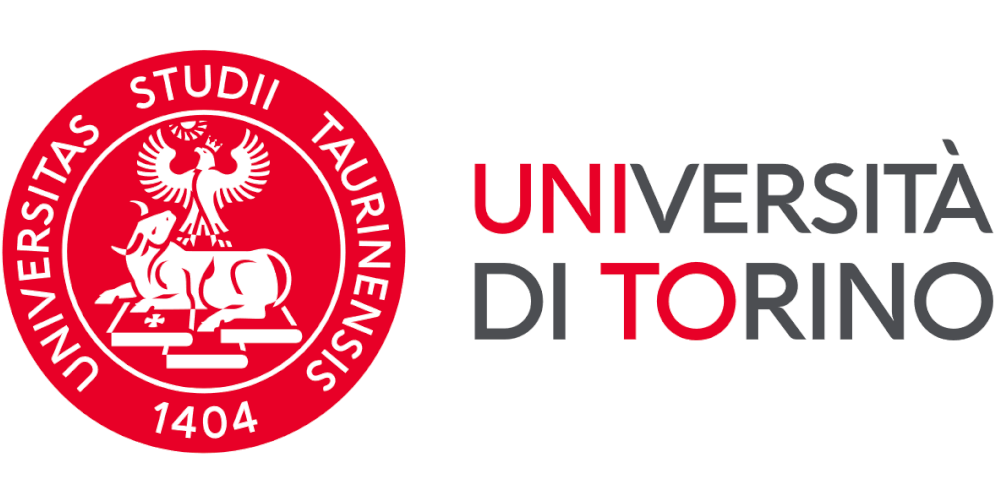


IN QUATTRO’s innovative two-phase cooling technology delivers advanced thermal management for HPC servers while enabling efficient integration in sorption heat pumps, combining high-performance cooling with sustainable energy applications.
In Quattro’s two-phase cooling system is an advanced thermal management solution designed for High-Performance Computing (HPC) servers and data centers. It uses the principle of evaporation and condensation of a dielectric fluid to efficiently remove heat from high-power processors and other electronic components.
The two-phase cooling, or evaporative liquid cooling technology represents a significant advancement in server thermal management, offering higher cooling capacity, improved efficiency, and greater flexibility compared to traditional cooling methods.
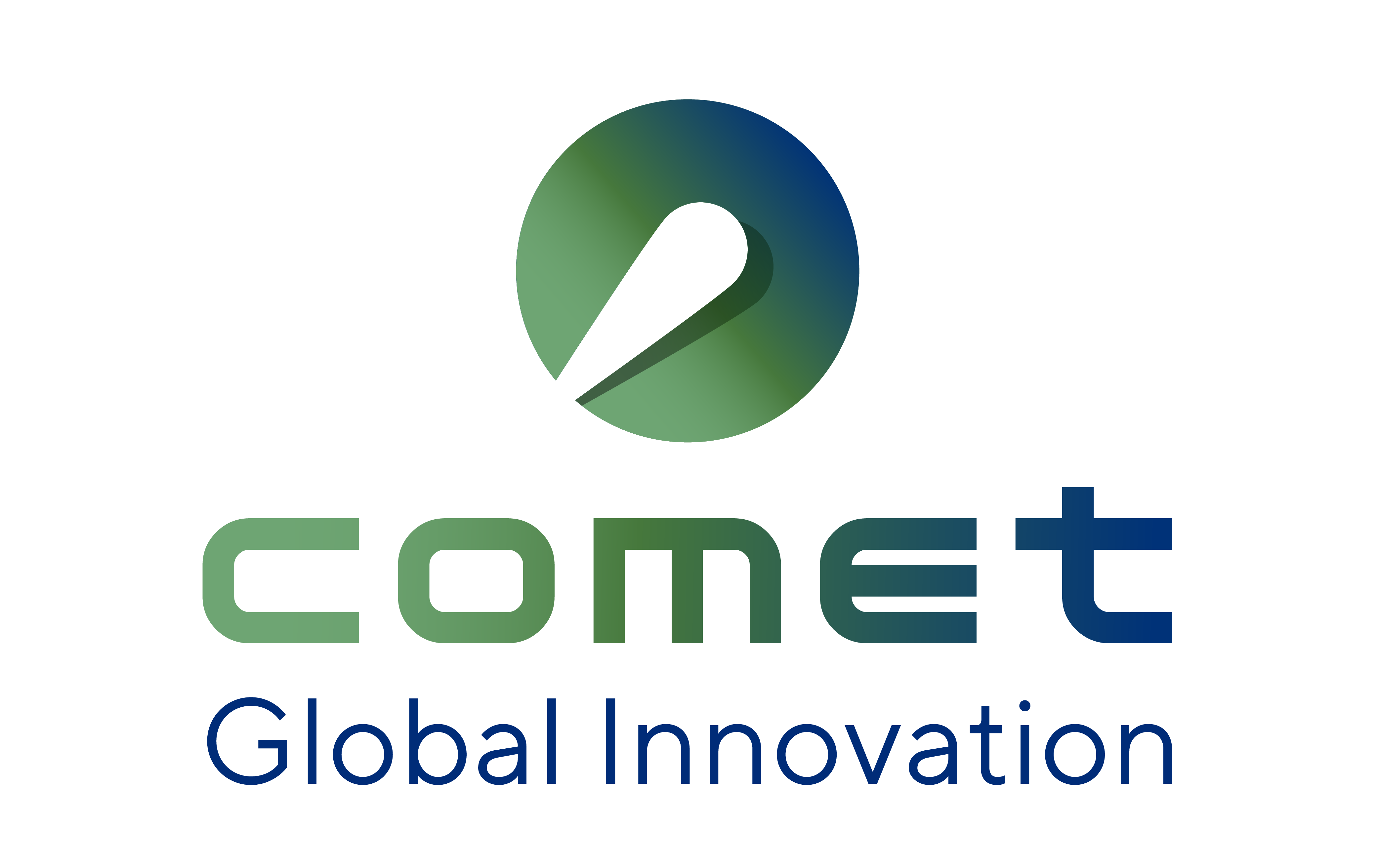
Comet G.I. is a private entity specialising in technological innovation based in Barcelona, Spain.
One of Comet G.I.’s main missions is managing, communicating, and disseminating R&D&i projects and effectively commercialising projects and initiatives financed by the local, national, or European public and private sectors.
Comet G.I. is led by a team of highly qualified experts in their areas of knowledge, with more than 25 years of experience developing advanced research projects aimed at achieving the sustainable development goals (SDGs) framed in the 2030 Agenda.
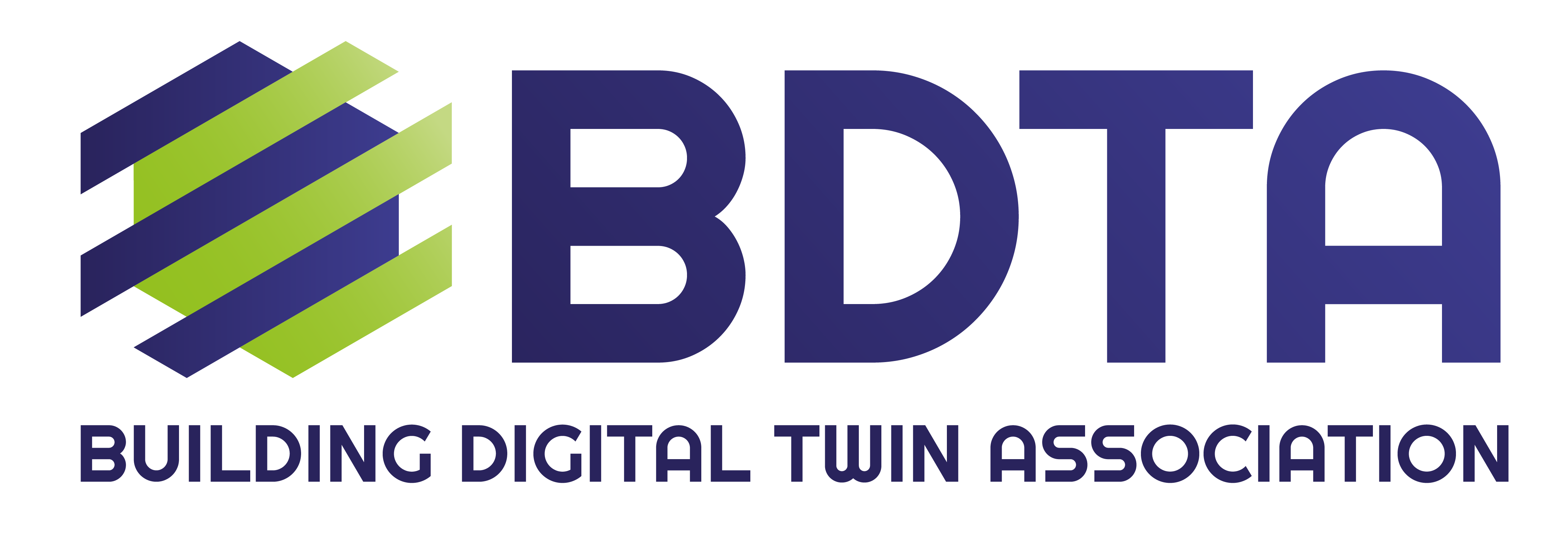
The Building Digital Twin Association is a non profit Association. It’s mission is to implement the Digital Twin approach in the AECOO sector, integrating it with BIM technologies.
In this way, BDTA, contributes to the creation of definitions, policies and standards. In addition, BDTA manages the so-called SIMBOTS: Legacy equipment needs a simulation container which makes it possible to reuse in different user contexts. Fabricators can pack the functionality of their equipment in an ontology (O4BSIM) which is connected with simulation libraries. In that way, SIMBOT’s it can be reused for real time simulations, quickly and with functional security, testing the performance of the machine in that specific context. SIMBOT’s is a way to make economic the generation of complex simulation schematics, using the physics and controls of equipment already prepared by fabricators.

BSC is one of the leading supercomputing centres in Europe and hosts one of the most powerful supercomputers in the world, MareNostrum 5.
It specialises in High Performance Computing (HPC) and has a dual mission: to provide supercomputing infrastructure and services to the Spanish and European scientific communities, and to generate knowledge and technology for transfer to society. The centre manages the Spanish Supercomputing Network (RES) and is one of the hosting entities of the EuroHPC JU, the European initiative leading large-scale investment and deployment of HPC in Europe.

Sorption Technologies (SOR) is a European manufacturing company of adsorption chillers with headquarters and production plant in Germany, and R&D facility in Italy.
We develop, design and produce customized thermal chiller solutions, that need primarily heat instead of electricity. Our adsorption chillers use solid sorbent -silica gel- and natural refrigerant R718 -pure water- with GWP = 0; they require “low temperature” heat from 55°C to work and this allows electricity savings between 60% and 80% compared to a traditional electric chiller, with a consequent reduction in CO2 produced.

CIBELIOS is an energy services company focused on the Promotion, investment, Facility Management and O&M services of RES projects, assets and installations, energy efficiency and sustainability in Spain,, Portugal and italy, based on the open innovation paradigm, which allows us to collaborate with different companies along the value chain.

We believe in sustainable data centers, and efficient HPC/AI computing. Gain +20% efficacy per watt, or +20% more jobs.
How? With the new software standard for CPU and GPU: Energy Aware Runtime.
EAR is a powerful energy and power management software stack. EAR does monitoring, analysis, reporting, powercap and optimization!
It is hardware independent, configurable, live at runtime and non-intrusive. Deep tech but user-friendly.
Some of our clients: Leibniz Supercomputing Centre, EDF, SURF, Barcelona Supercomputing Center, and EU research projects…

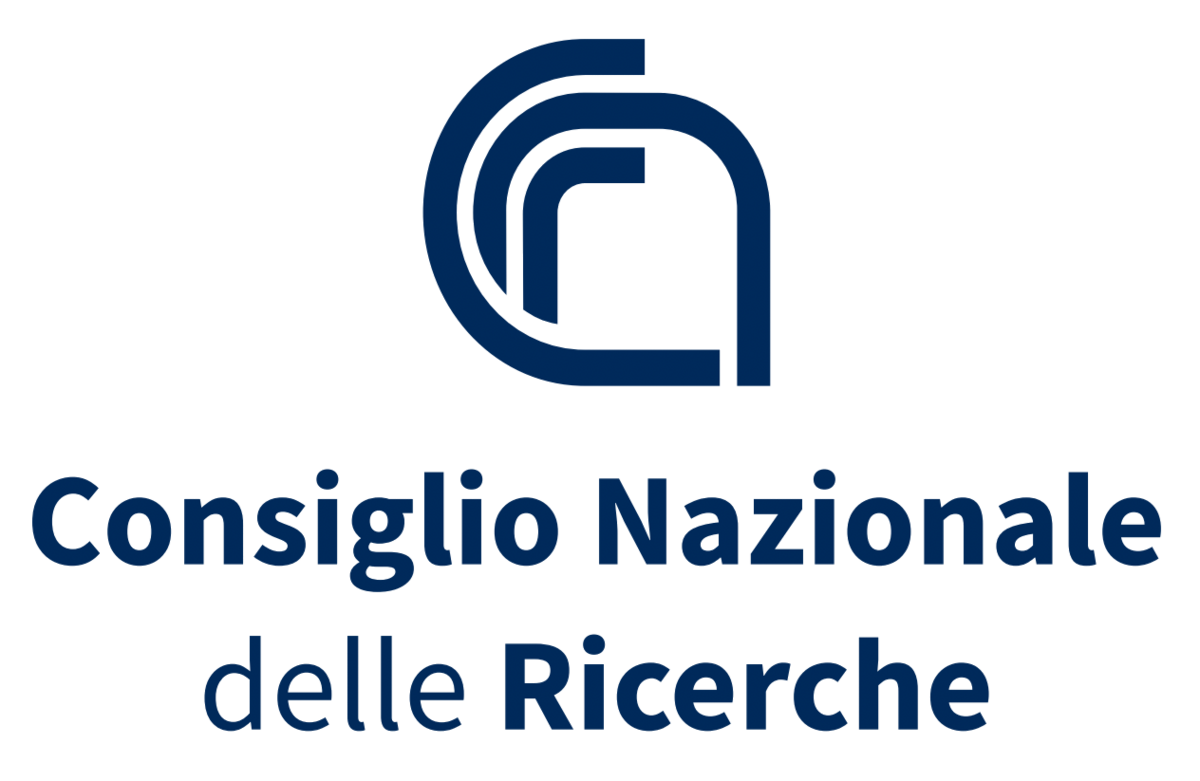

IN QUATTRO’s innovative two-phase cooling technology delivers advanced thermal management for HPC servers while enabling efficient integration in sorption heat pumps, combining high-performance cooling with sustainable energy applications.
In Quattro’s two-phase cooling system is an advanced thermal management solution designed for High-Performance Computing (HPC) servers and data centers. It uses the principle of evaporation and condensation of a dielectric fluid to efficiently remove heat from high-power processors and other electronic components.
The two-phase cooling, or evaporative liquid cooling technology represents a significant advancement in server thermal management, offering higher cooling capacity, improved efficiency, and greater flexibility compared to traditional cooling methods.

Comet G.I. is a private entity specialising in technological innovation based in Barcelona, Spain.
One of Comet G.I.’s main missions is managing, communicating, and disseminating R&D&i projects and effectively commercialising projects and initiatives financed by the local, national, or European public and private sectors.
Comet G.I. is led by a team of highly qualified experts in their areas of knowledge, with more than 25 years of experience developing advanced research projects aimed at achieving the sustainable development goals (SDGs) framed in the 2030 Agenda.

The Building Digital Twin Association is a non profit Association. It’s mission is to implement the Digital Twin approach in the AECOO sector, integrating it with BIM technologies.
In this way, BDTA, contributes to the creation of definitions, policies and standards. In addition, BDTA manages the so-called SIMBOTS: Legacy equipment needs a simulation container which makes it possible to reuse in different user contexts. Fabricators can pack the functionality of their equipment in an ontology (O4BSIM) which is connected with simulation libraries. In that way, SIMBOT’s it can be reused for real time simulations, quickly and with functional security, testing the performance of the machine in that specific context. SIMBOT’s is a way to make economic the generation of complex simulation schematics, using the physics and controls of equipment already prepared by fabricators.

BSC is one of the leading supercomputing centres in Europe and hosts one of the most powerful supercomputers in the world, MareNostrum 5.
It specialises in High Performance Computing (HPC) and has a dual mission: to provide supercomputing infrastructure and services to the Spanish and European scientific communities, and to generate knowledge and technology for transfer to society. The centre manages the Spanish Supercomputing Network (RES) and is one of the hosting entities of the EuroHPC JU, the European initiative leading large-scale investment and deployment of HPC in Europe.

This project has received funding from the European Union’s Horizon Europe programme under grant agreement No 101161930.